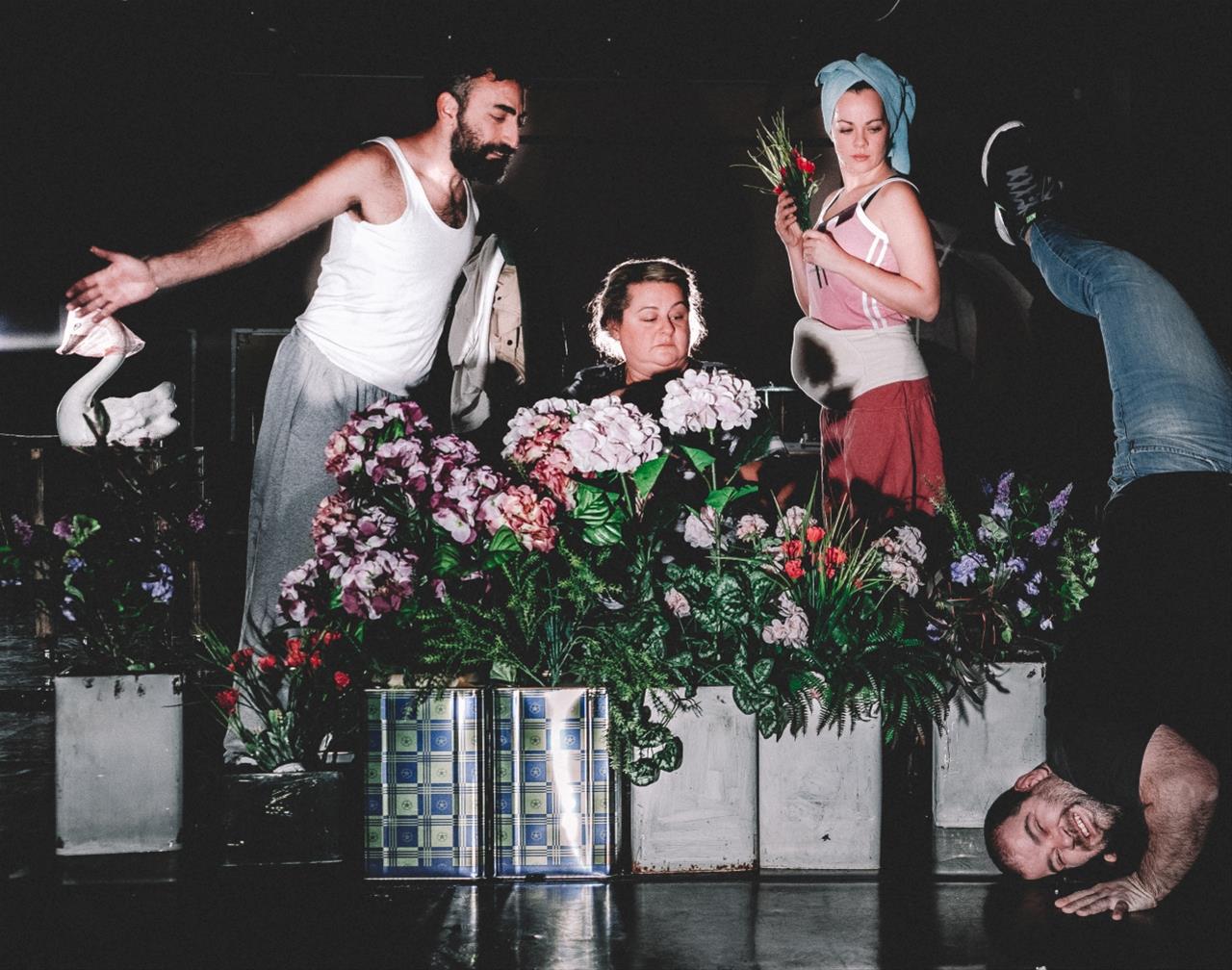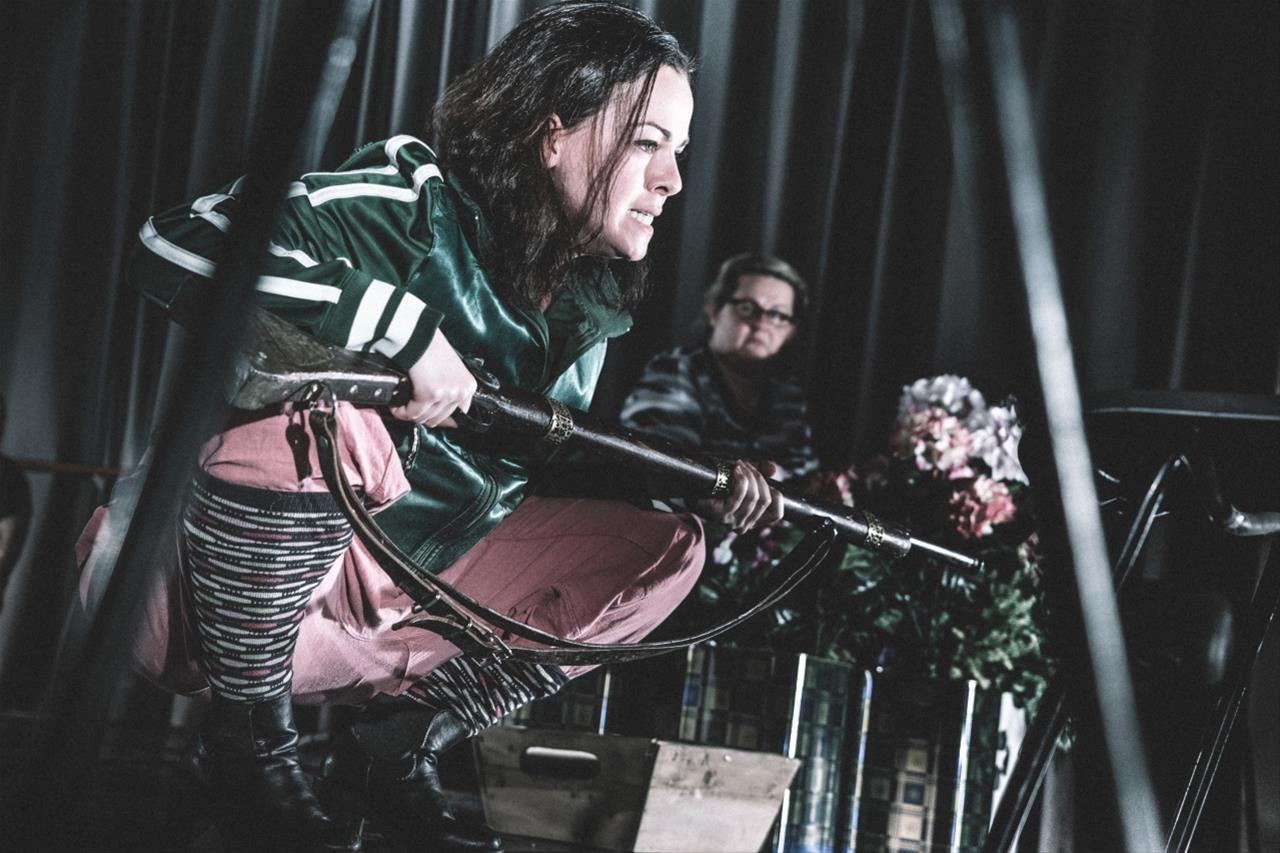OPENING: 23/02/2019
DAYS & TIMES: Wednesday at 18:00, Thursday-Friday-Saturday at 21:15, Sunday at 20:00
RUNNING TIME: 90 min (no interval)
TICKET SALES: NTNG Box Offices (Τ.
2315 200 200) |
VIVA.gr | Τ.
11876
Suitable for ages 15+
Kostas Vostantzoglou
Kostas Vostantzoglou was born in Athens in 1949. He graduated –after too many efforts– from the 14th Secondary School, probably because his teachers could no longer tolerate him and during the same year he enrolled in Doxiadis School and in particular in the courses of the Department of Graphic Design. Then, he joined the army for 28.5 months at a military camp of all the unwelcome. He was an athlete too. For 37 years, he worked at various advertising agencies as an art director. He is married. There are many other things that form part of his life but he thinks they are boring details with no particular significance.

Author’s Νote
One night K. was watching a movie on TV with his wife. He didn’t like the movie at all. “It really sucks” said to his wife “Even me I could write a better script for this movie”. His wife looked at him and said “Your therapist told me never to say no as an answer to you”. Although he did not react in a direct way, he was deeply insulted. From that moment on, in the tender age of 60, he was set to prove to his beloved wife −with a foul mouth− that he could write even better. So, in two months he wrote “The Elephant”.
He is really grateful to Mrs. Chara Bakonikola, drama professor at Athens University and Sorbonne University PhD, for all her observations regarding his first script and for not telling him to throw it away. He also owes a debt of gratitude to Mr. Thanasis Papageorgiou, a wonderful friend, director, actor and writer who trusted a graphic designer to write a script. He also taught him not to fall in love with his scripts, not to babble and moreover he removed −with surgical precision− everything useless from his work.
The National Theatre of Northern Greece honoured him by choosing to present on stage his “Elephant”, a fact that makes K. feel justified and proud before his wife. He would like to thank in advance all those people –actors, technicians, all contributors and especially Yannis Leontaris and Υannis Anastasakis– who struggled hard so that “The Elephant” could be presented on stage.
Director’s Νote
There are people –not us!– who say: “You are not going to tell me what to do! I’ll do whatever I want to!”. And indeed they do so.
There are people –not us!– who say: “You don’t know me at all. I haven’t said my last word yet!”. And indeed they do so.
There are people who say: “There is a moment when you break all glassware in pieces and don’t give a damn about it… about everything!”. And indeed they do so.
These people are not like us. They do what they say and think of nothing when they act. How far is humiliation with dignity? A dish of lentil soup. The poison is secreted inside the heroes’ organism since their adulthood. Or even before? These people are not like us until finally proven wrong. You never know.

“The Elephant” by Kostas Vostantzoglou is a really special sample of theatrical writing of the Modern Greek theatre since it combines brutal barbarity of human relations in the remote countryside with comedian elements under an extremely bold proposal regarding Greek language. The local idiom –which may come from Thessaly, Roumeli or Epirus– gives its place to a barbaric abuse of the Greek language. The quality of the Greek language spoken by the characters of the play is mainly formed by ignorance, lifestyle, an exaggerated admiration for an ancestor worship and the fascistic perception as an everyday family experience.
The “Greek tradition” is a kind of mosaic combining greatness with tawdriness, submission with rebellion, crime with catharsis, cruelty with sobbing. “The Elephant” is a bucolic musical, a comic symposium of death.
A blind elephant is wandering around Pindus Mountains looking for someone who could play music for him.
Contributors
Director-Music & Video Supervisor: Yannis Leontaris
Sets-Costumes: Alexandra Bousoulenga, Rania Yfantidou
Lighting: Nikos Vlasopoulos
Assistant Director: Marilena Katranidou
Production Photography: Tasos Thomoglou
Production Coordinator: Dimosthenis Panos, Marily Ventouri
Second Assistant Director (Intern): Sofia Bletsou
Cast in alphabetical order
Sofia Kalemkeridou: Gogo
Nikolas Maragkopoulos: Mitsos
Panagiotis Papaioannou : Tasos
Marianna Pouregka: Voula